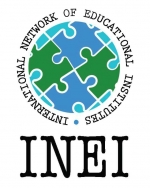Recommendations 2011
The International Alliance of Leading Education Institutes (IALEI) recommends that all countries:
# 1 Strive towards greater use of validated research findings in building policy and practice.
Policy development and implementation is complex. The influences on politicians and policy makers are varied. IALEI stresses the importance of universities taking a public and proactive stance on the importance and value of research in education and on the role of education in the global knowledge society. To benefit from research and education requires stronger efforts from governments, the research and education sector and the broader community. And it involves not only advocacy for research funding, but also the greater use of validated research findings in education policy and educational practices. To achieve this impact, there is a need of a closer working partnership between the universities and policy makers in educational agencies.
# 2 Build effective partnerships through open dialogue.
IALEI recommends that universities, individually and collectively, should build ongoing partnerships with international organisations, government bodies and ministries of education, teacher organisations, school districts, education leaders and others in order to increase the connections to meaningful research and its thoughtful application to policy and practice. Through these relationships, research mobilisation will become a more common and expected part of the work of researchers and of universities, as organisations will be better received by the broader education community. Open dialogue with many partners around differing forms of knowledge should be developed to ensure that the work of universities is widely and deeply understood so that it can be used as effectively as possible.
# 3 Knowledge mobilisation should become a strategic target for university leaders.
IALEI recommends that universities’ efforts for sharing knowledge become a strategic effort, rather than individual steps. This will require leadership that can transform universities with regard to incentive systems, organisation of research teams and research outreach, greater use of research syntheses, effective use of websites to mobilise research knowledge, and support and infrastructure for research mobilisation. It will also require universities to re-examine the ways in which their graduate and professional development programmes, as well as initial teacher education, build lasting connections between research, policy and practice, so that graduates understand how to create the necessary structures and practices to this end, and that graduates act effectively as bridges between research and practice.
